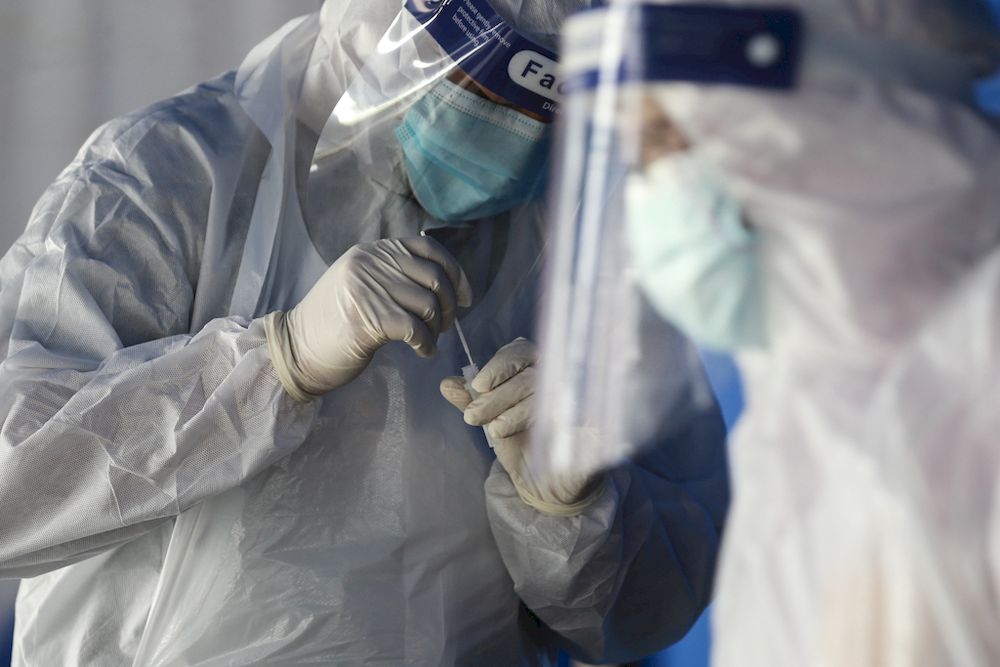KUALA LUMPUR, July 19 — A coalition of health organisations and doctors have stepped forward to offer a Health Emergency Action Plan (HEAP) in light of the Covid-19 pandemic’s impact on the country’s healthcare system.
It said the aim of offering these ideas and making suggestions is not to apportion blame or point fingers at failure but to offer a roadmap to recovery from Covid-19.
“HEAP is based on three guiding principles, which include trust as being crucial to fighting the pandemic and based on transparency, the necessity of an all-of-society approach, and a set of solutions that are not lockdown-based,” said the coalition in a statement.
HEAP’s recommendations are centred on several key thrusts, such as interrupting the community spread of Covid-19 by having a comprehensive national testing strategy, tracing all contacts, enabling public self-test, home quarantined with monitoring, and limiting non-critical social interaction.
“Similarly we need to ramp up genome testing to monitor Covid-19 variants. It is also necessary to increase support for Health Ministry hospitals and clinics by improving conditions for contract staff, growing ventilation and Intensive Care Units capacity, respite for staff and ensuring a multi-sectoral approach with civil society support.
“Data transparency and sharing with the public is important. The media should be engaged as partners to communicate better metrics that monitor the pandemic and hospital situation, as well as combat rumours and fake news,” it said.
The coalition stressed that strong co-operative leadership is vital and proposed the formation of a national coordinating unit that reports to both the Cabinet and to Parliament. In this instance, decision making should be decentralised to states to enable rapid local action capacity.
“Vaccination and vaccination sites need to be ramped up with less reliance on mega vaccination centres and better use of maternal-child health clinics, school health teams and general practitioners.
“Outreach programmes are necessary to reach those unable to register as well as non-citizens. While we want to fix hot spots, equitable vaccination distribution is important for all states,” it said.
The coalition said community responsibility and support is integral to making headway in this pandemic.
“This requires simpler, science-based standard operating procedures, using Antigen Rapid Test Kit (RTK-Ag) testing to enable a return to work, significant improvement in workplace ventilation, and a safety net for the poor,” it said.
Other recommendations by the coalition include the need for a more robust and automated case notification system for contact tracing that is linked to epidemiological investigation, home case monitoring and healthcare facility response planning and preparedness.
“The public should be enabled to conduct self-tests by making cheap saliva-based RTK-Ag tests in commercial pharmacies and government health centres available, for any member of the public to do home testing.
“In turn this must be connected to the national system for contact tracing and case reporting, with citizens being educated to inform the authorities for positive tests. Citizens must home quarantine if positive and inform local GP or healthcare practitioners, via a national list of relevant contacts,” it said.
The coalition also highlighted the need to provide more support for ministry hospitals and clinics, along with their personnel.
“Provide durable and fair solutions to all contract staff including doctors, pharmacists, and nurses, with immediate effect. This will require a combination of more permanent posts,
longer contracts, equal benefits, and clearer career progression pathways.
“Deploy staff from other government agencies to help with clerical, transport and manual tasks for the Health Ministry. Work towards a minimum of one full-day day rest for all
ministry staff (on rotation) in a week,” it said.
To boost the growth of ventilation capacity, military and private hospitals should be better optimised to decant non-Covid-19 cases from ministry hospitals. The number of field hospitals manned by army, ministry, private and retired health staff should also be dramatically increased.
The coalition comprises 20 organisations including the Academy of Medicine Malaysia, the Malaysian Association of Environmental Health, the Malaysian Pharmacists Society, the Medical Assistants Association of Malaysia, and the Malaysian Health Coalition, among others.



















